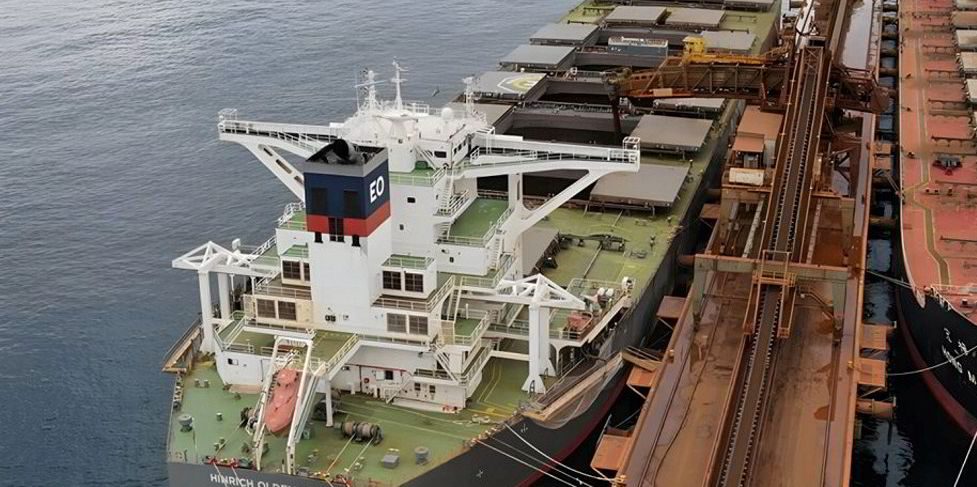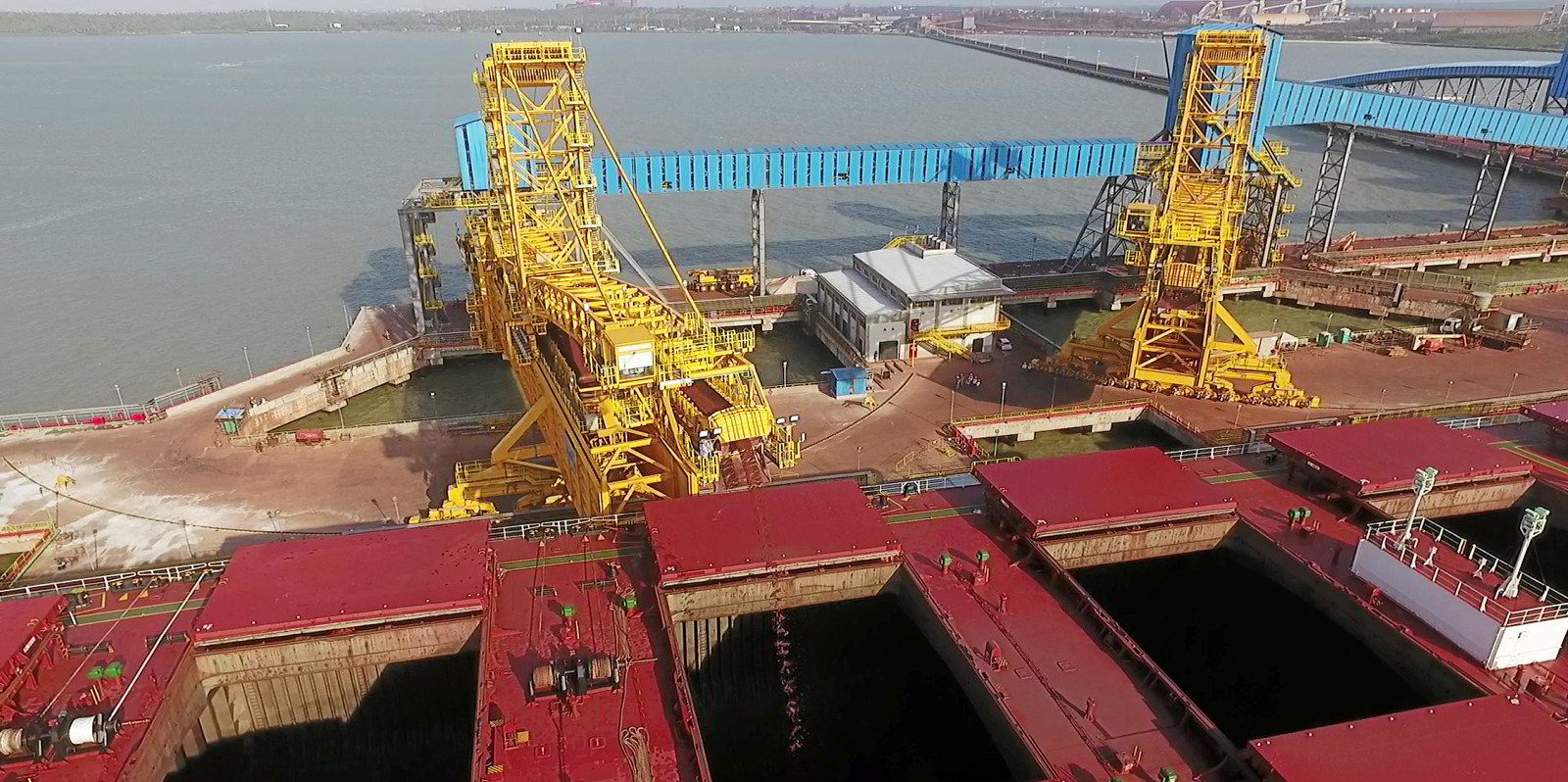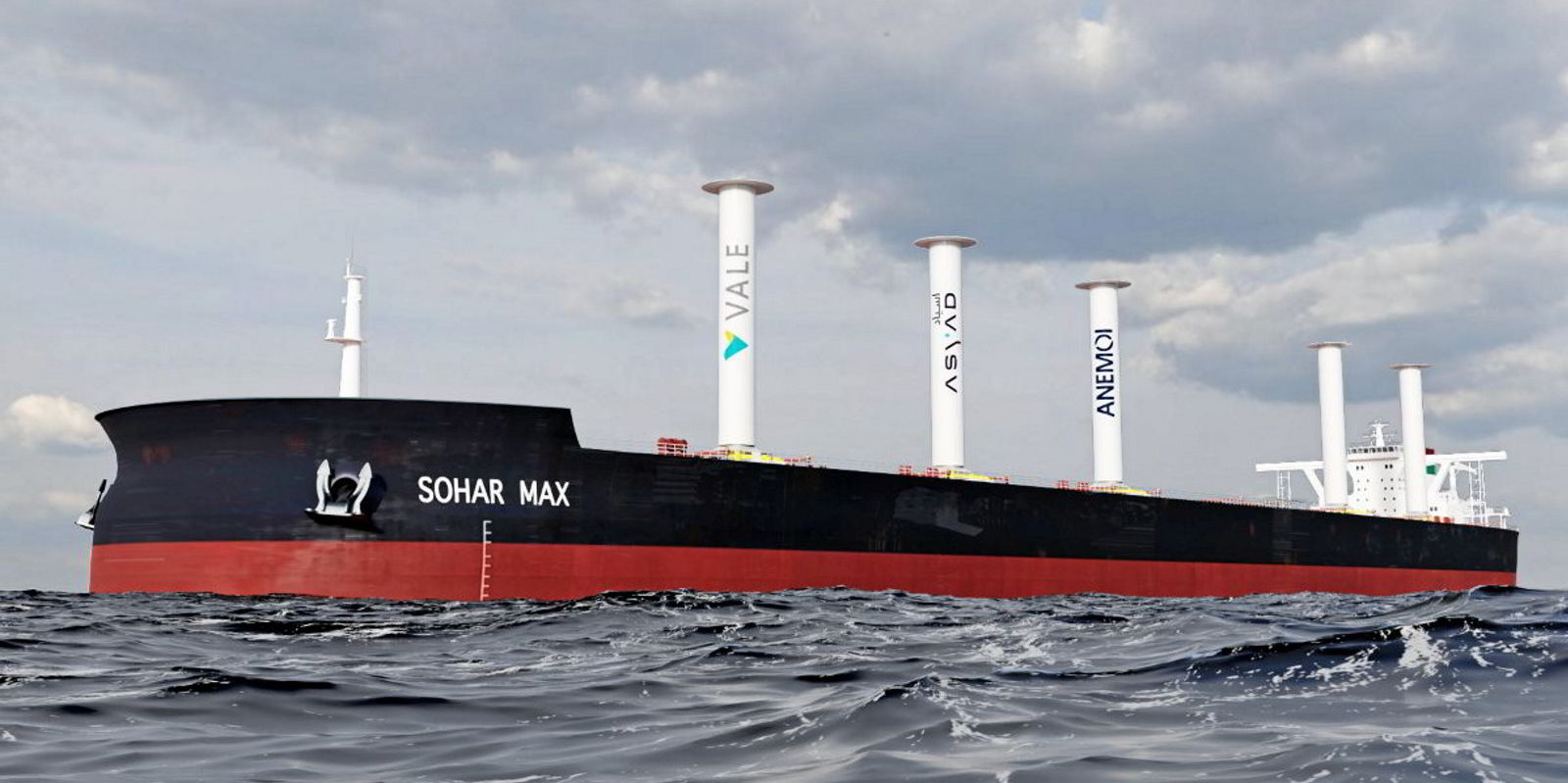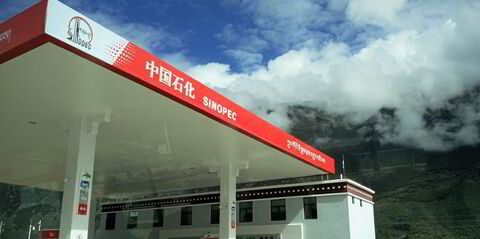A Vale-chartered vessel has carried out the Brazilian mining giant’s first laden voyage powered partially by biofuels.
The Rio de Janeiro-based company said it worked with German bulker operator Oldendorff Carriers for the voyage using biofuels made from residual cooking oil.
The trial marks another arrow in the quiver of Vale’s Ecoshipping programme to test green technologies — which have so far included methanol, wind propulsion and air lubrication — in a shipping operation that underpins the Brazil-to-China iron ore trade.
The company said the fuel will reduce well-to-wake greenhouse gas emissions by about 18%, cutting 785 tonnes of CO2 from its supply chain emissions known as Scope 3.
The 209,000-dwt Hinrich Oldendorff (built 2016) loaded the biofuel in Singapore on 16 October before embarking on a ballast voyage to Brazil.
The ship loaded iron ore at Guaiba Island on Wednesday and will use the blend fuel with conventional bunkers for the voyage back to Asia.
Vale said it is using a B24 blend that is 24% cooking oil-based biodiesel mixed with conventional bunkers.
The company said the fuel is compliant with the European Union’s Renewable Energy Directive and is certified by International Sustainability & Carbon Certification.
Vale’s Ecoshipping programme is aimed at cutting greenhouse gas emissions from its shipping operation by testing alternative fuels and piloting energy-efficiency technologies.
Michelle Gonzales, manager of chartering, long-term contracts and operations at Vale, highlighted the role of shipping partners such as Oldendorff in that effort.
“Genuine collaborations and partnerships will be the key [to] success,” she said.
For Oldendorff, the voyage on a newcastlemax bulker from Brazil to Asia represents its longest voyage and largest vessel powered by biofuels.
“We look forward to investigating further opportunities together with Vale to advance the shipping and mining industries’ progress in achieving sustainability goals,” chief executive Patrick Hutchins said.




